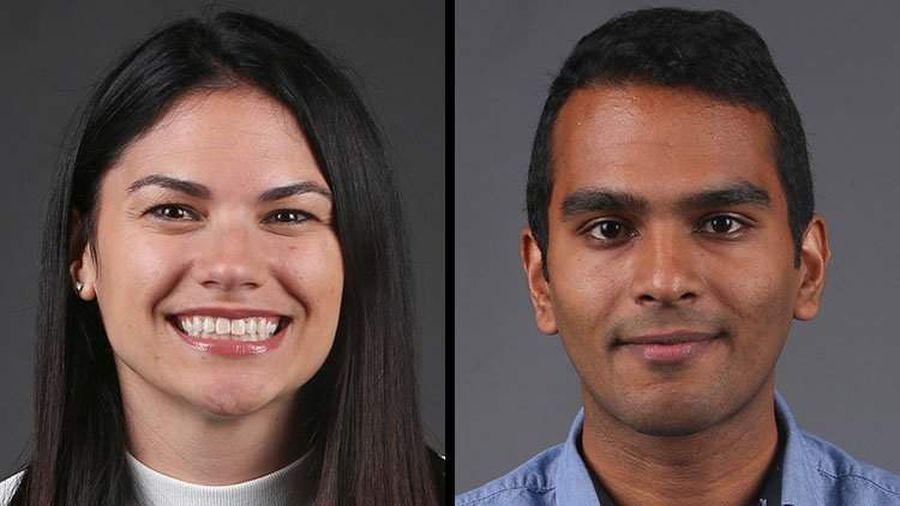ProPublica’s Kathleen McGrory and Neil Bedi advise journalism students
Pulitzer Prize-winning journalists Neil Bedi and Kathleen McGrory spoke at the Harrington School of Communication and Media’s annual Taricani Lecture series this past Tuesday. PHOTO CREDIT: Tampa Bay Times
Investigative journalist pair Kathleen McGrory and Neil Bedi of the news publication ProPublica spoke to students, faculty and community members of the University of Rhode Island at the fourth annual Taricani Lecture series this past Tuesday.
The duo, who have been reporting partners for nearly five years, shared experiences working together as investigative journalists at the Tampa Bay Sun in Tampa, Florida. Together, McGrory and Bedi won the Pulitzer Prize for local reporting in 2021, for their article “Targeted”.
The lecture was hosted by John King, a URI alum who is now the chief national correspondent at CNN. The hour-long event featured a 30-minute lecture portion and a 30-minute question and answer portion, where the audience was able to comment questions for Bedi and McGrory about their reporting experiences.
McGrory and Bedi shared the stories of three of the articles they have written together, “Targeted,” which exposed a local sheriff’s cutting-edge program that harassed residents of the community, “Hellfire from Above,” which exposed an electric power plant that had knowingly put their employees in danger and “Heartbroken,” which exposed a local hospital for malpractice and the deaths of many children.
McGrory told the story of how “Hellfire from Above” came to be, stating that it all started with a tip from a local community member about an accident at a power plant just outside of Tampa.
“We needed to know what happened and how something like this could’ve happened,” McGrory said. “We very quickly started calling experts and wanted to know, ‘is this something that happens often in power plants?’”
The two quickly discovered that the power plant in which this accident happened has had more accidents reported than any other power plant in the state of Florida, McGrory said. After publishing the first story in the series, they began to welcome in even more tips from workers at the company about suspicious activity within the company.
McGrory emphasized the importance of journalists fact-checking and listening to every tip that comes into the newsroom when working on an investigative piece.
“As you all start getting into journalism and getting into investigative journalism, you will understand that no tip goes unvetted,” McGrory said. “We had to double, triple check everything we heard and everything we learned, and so we went out to as many current and former workers at these plants that we could find.”
After months of reporting, McGrory and Bedi published “Hellfire from Above,” which led to the federal government fining the company $130,000, which is one of the largest fines that has ever hit a power company in Florida, for violating the rules in the specific procedure that led to the death of five workers.
The two took turns sharing pieces of advice and takeaways that they had from their experience working as investigative journalists. These takeaways included analyzing documents and data, being fair in reporting and the importance of the first amendment, which includes freedom of the press, in journalism.
Bedi shared his thoughts on fair reporting and the process that he and McGrory went through to ensure that they were practicing fair journalism.
“We always start our investigations by reaching out to the subjects and asking for an interview,” Bedi said. “We want to know their perspective early on, and so it’s always important to reach out. We always make sure everyone in the story has a chance to respond, and that anyone who’s named in the story has a chance to respond before it’s published.”
During the Q&A portion of the event, Bedi and McGrory answered audience questions about dead-end investigations, advice for aspiring journalists, safety concerns and working on long projects under deadline pressure in the newsroom.
“I would try picking up a new advanced journalism skill,” Bedi said in regards to students looking into the practice of investigative journalism. “I mean, I say that because I came into journalism with a lot of skills and data that helped me really breakthrough in investigative journalism because I had a skill that a lot of other reporters in the room didn’t have.”





